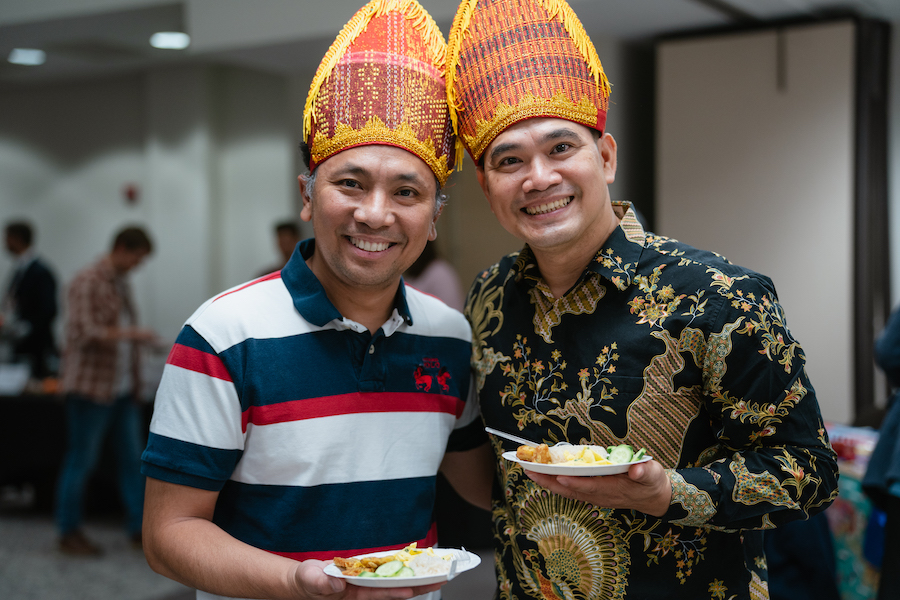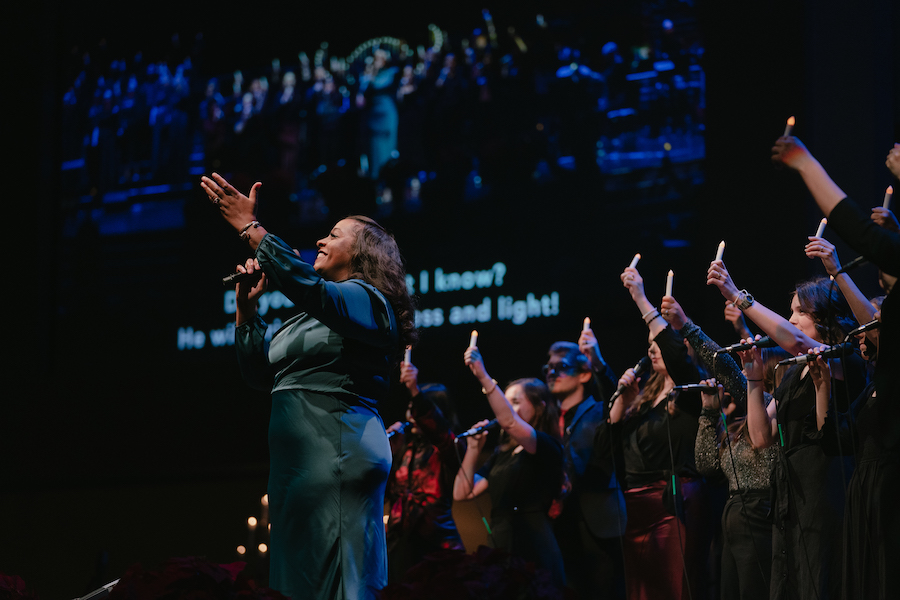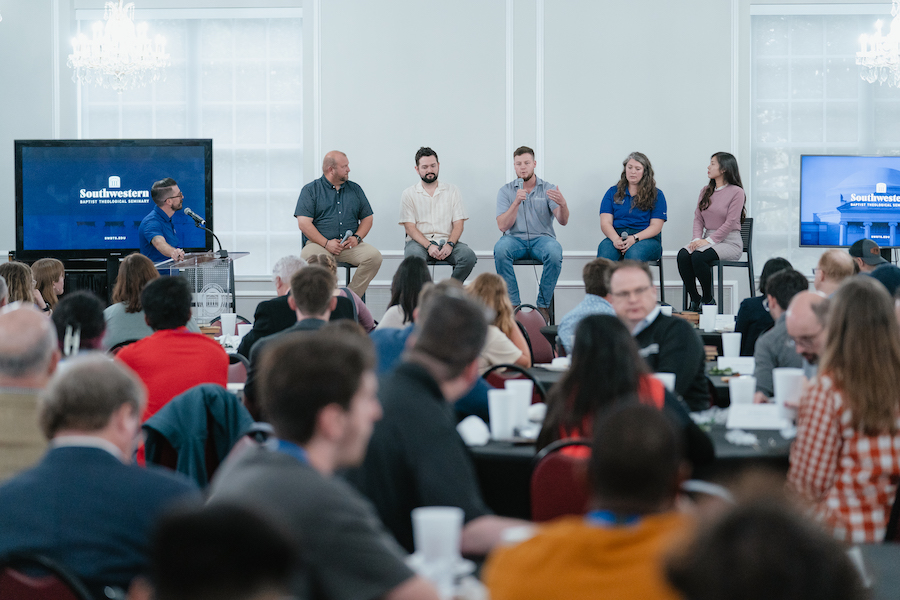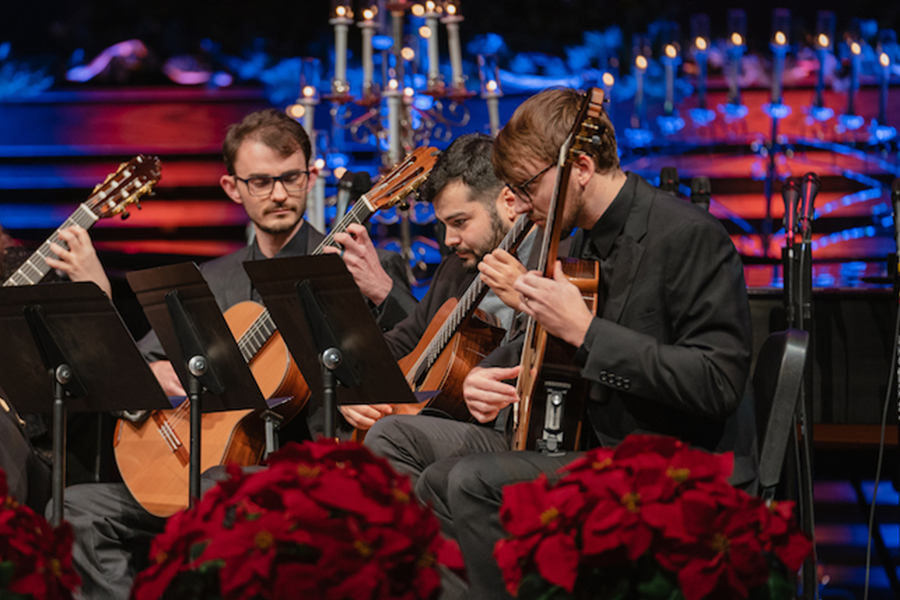Depending on God, Southwestern, TBC students see conversions during Crossover


RIVERSIDE, Calif. – With a huge smile, Joy Mathis* explained, “I am really happy that God answered my prayer that knocking [on] the door really works.”
Mathis, a Master of Arts in Christian Education student at Southwestern Baptist Theological Seminary who is from East Asia, was one of 34 Southwestern and Texas Baptist College students who participated in Crossover the week before the Southern Baptist Convention annual meeting in Anaheim. During the June 6-10 week, Southwestern Seminary and TBC students knocked on 537 doors of homes, had 322 conversations, engaged in 237 Gospel conversations, and led 18 people to salvation in Christ, said Carl J. Bradford, assistant professor of evangelism at Southwestern Seminary and faculty leader of Southwestern and TBC’s Crossover team.

During the week, Southwestern Seminary, Gateway Seminary, New Orleans Baptist Theological Seminary, and Southern Baptist Theological Seminary students gathered at California Baptist University in Riverside to learn how to share the Gospel and methods for beginning Gospel conversations from the evangelism professors from each of the seminaries. Each afternoon, following a large group teaching time in the mornings that included the students from all the seminaries, the students divided into groups by seminary to spend the afternoon partnering with local churches to canvas the community going door-to-door to share the Gospel and about events at the partner church. On Friday afternoon, the Southwestern students partnered with a church in nearby Huntington Beach to share the Gospel with beachgoers who were enjoying the sun and sand.
“Crossover gives students the opportunity to bring the good news of God’s love to the broken-hearted, hurting, lonely, and spiritually lost,” Bradford said. “Additionally, it increases students’ faith and dependency on God especially as they are faced with difficult objections, closed doors, and see minimal salvation responses. They truly experienced Holy Spirit-dependent and -empowered evangelism.”
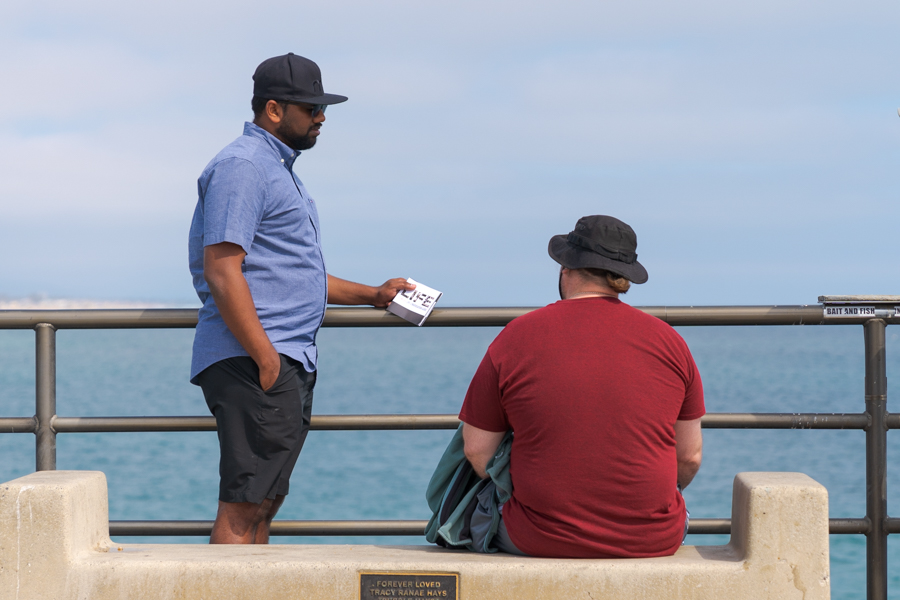
As he taught the students how to share the Gospel by going from house to house, Bradford told them to ask questions to connect with the people inside the homes. He showed them how to use the 3 Circles Gospel presentation, and how to phrase the Gospel into two sentences. Bradford also taught the details and courtesies of door-to-door evangelism, including the strength of the actual door knock, the sensitivity of infringing on personal space, and how to begin the conversation if the door was answered.
Though she had heard of the “method” of knocking on doors, Mathis was hesitant because she “didn’t believe in knocking [on] the door.” The testimonies she heard from others verified it “works,” she said, but she had many questions because she “was more self-focused.” As an international student, English is Mathis’s second language, and, coupled with safety concerns that emerge from the “uncertainty and unknown” elements of door-to-door evangelism, she explained she began to focus on herself.

Nightly, the students debriefed with Bradford for a time of prayer and encouragement and to recount what they learned throughout the afternoon of knocking on doors. One evening, Mathis shared her “concerns” and “weaknesses” with her classmates and professor. They prayed for her, shared Scripture, gave their personal testimonies, and provided practical ideas and suggestions for how they “overcome their weakness.”
That evening Mathis prayed and told the Lord, “I’m willing to do this and I am here. I’m certain this is your will. I want to do it, but I don’t know if I’m able to do it. I know other students can do it, but I’m not sure if it’s me. I’m not sure if it’s my method.” She asked God to show her if knocking on doors “really works” and asked for His help.
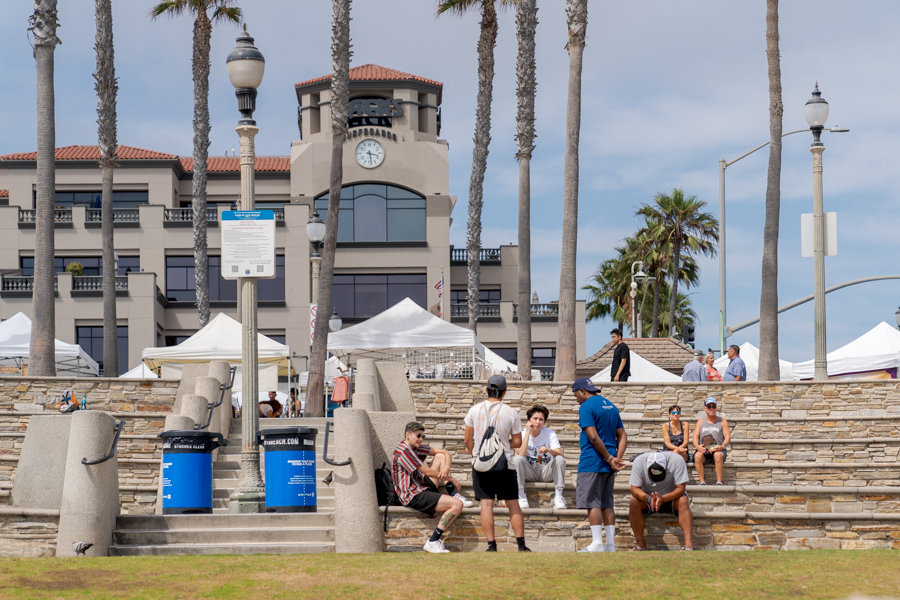
The following afternoon, along with her fellow Southwestern students, Geur Chang, a Master of Divinity in evangelism and missions student, and Maranda Brown, a Master of Arts in Biblical Counseling student, a “very excited” Mathis set out to knock on doors.
At the first house, Mathis knocked on the door with no response. After knocking a second time, a man named Eddie answered the door. Brown shared information about an upcoming event at the local church and the trio asked if they could pray for him about anything. He explained his dad had passed away a few days prior to their visit.
Mathis said “in that moment” she felt as though “God prepared us for him and also prepared him for us.” Each of the students shared how they had experienced the loss of a loved one, which Mathis said “built up a connection” with Eddie.
Chang explained Eddie indicated he had been reading Scripture and “praying to God about decisions in life.” The death of Eddie’s father left him with the responsibility of raising multiple children. The group prayed for him and began to ask questions building on the work God was already doing in Eddie’s life.

In a “new conversation,” Mathis said they began to ask Eddie questions to learn if he knew “who God really is” and if he had ever been to church, which led to an opportunity to share the Gospel. Brown began sharing the 3 Circles evangelism presentation with him and, by observing his behavior, Mathis said they could tell Eddie wanted to know more. After talking with him more, Brown asked if Eddie wanted “to accept Jesus as his Lord” to which he answered “yes.”
Chang pulled out his Bible to begin showing Eddie passages of Scripture and to confirm he truly understood the Gospel before praying to receive Christ. After sensing Eddie understood the decision he was about to make, the group led him in praying to ask Jesus to be his Lord and Savior.
As the trio debriefed immediately following their time on Eddie’s doorstep, Mathis was surprised to learn Eddie’s salvation was the first salvation Chang and Brown had been a part of in door-to-door evangelism. Chang and Brown told Mathis though they had been a part of knocking on doors previously, Eddie’s salvation was the first they had ever seen.
Mathis, though, realized God used what she termed a weakness to make a connection with Eddie. English was also the second language for Eddie, whose native language is Spanish.

Mathis said the entire week of Crossover “refreshed” her understanding of the Gospel and allowed her “to see the lostness” of people around her.
During the Thursday evening prayer time, the Southwestern and TBC students began to list the names of the lost people they had met during the week. Mathis said as the names were called, she began to cry.
“When we open the door, it’s real people standing there,” Mathis explained. “That just really touched my heart because it’s not numbers, it’s actual people and it’s a soul that we need to save.”
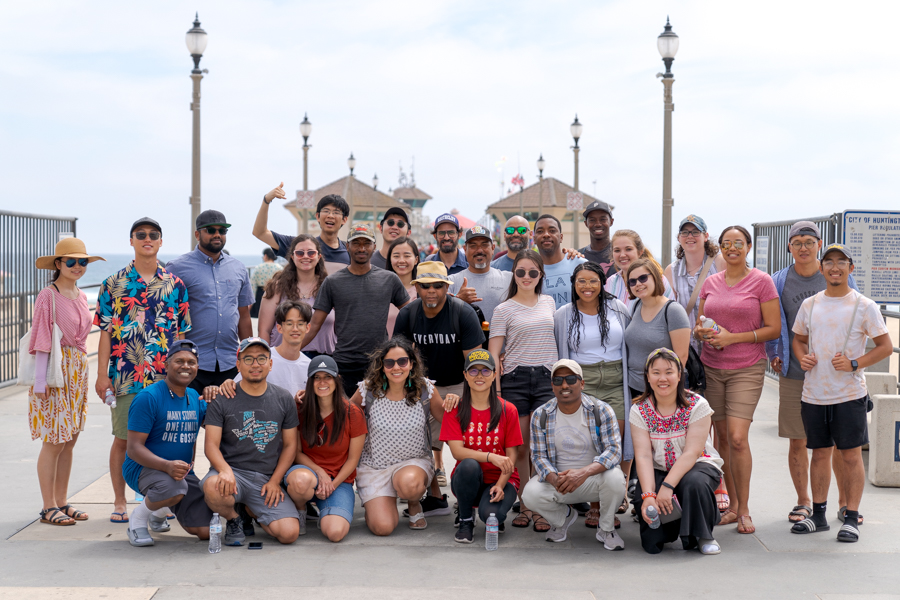
Mathis’s experience during Crossover is a testimony of what God did in the lives and hearts of all the students.
“God turned the hearts of the students to move from a self-centered evangelism and a message-centered focus evangelism to an other-centered evangelism,” Bradford concluded. “Throughout the week they thought less about rejection and fear of incorrectly delivering the Gospel message. The students developed a greater passion for the saving of the lost.”
*Name changed for security reasons.
